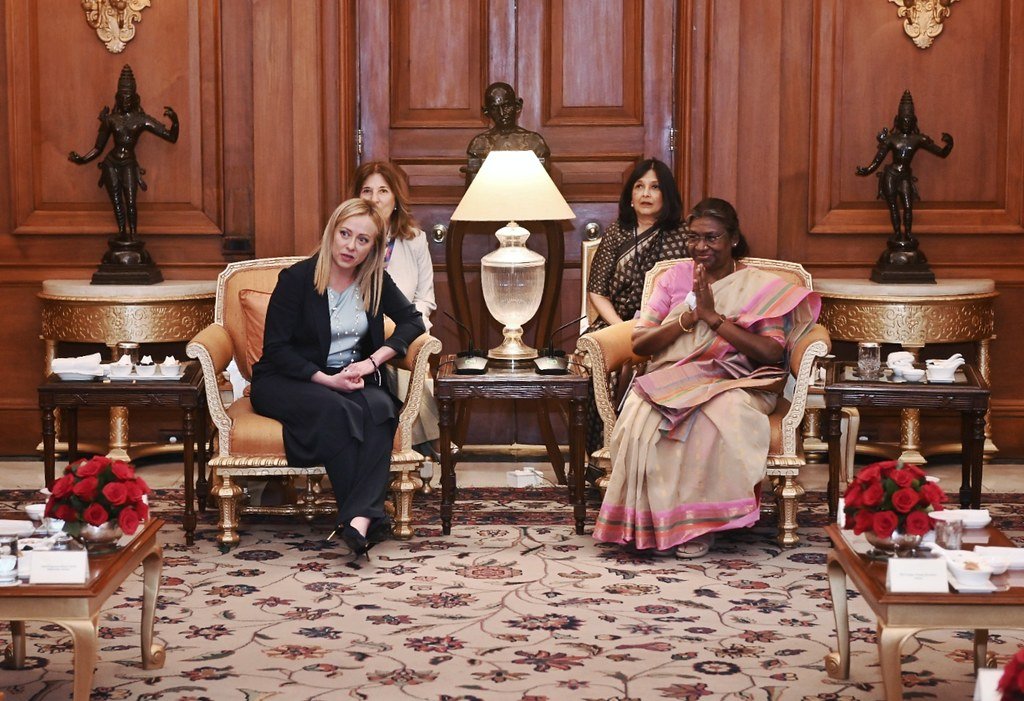Introduction
Italy and China, two countries with a rich tapestry of history and culture, came together at the recent G20 summit in New Delhi. As leaders of global importance, Italian Prime Minister Giorgia Meloni and China’s Premier Li Qiang met to explore the multifaceted potential of their bilateral relationship. Beyond the diplomatic formalities, the essence of their discussions revolved around furthering dialogue on pivotal bilateral and international matters.
Bridging Rome and Beijing: A Historic Connection
Rome and Beijing, the capital cities of Italy and China respectively, have long been significant centers of politics, culture, and commerce. As representatives of these powerhouses, Meloni and Li Qiang, reiterated their commitment to strengthening ties. The importance of such ties cannot be understated, given the influential roles both nations play in global politics and economics.
According to a statement released by Meloni’s office, the dialogue between Rome and Beijing aims to expand in breadth and depth. Both leaders recognized the shared objectives and mutual benefits that arise from a close relationship. The significance of this dialogue is further amplified when placed in the context of contemporary global politics.
The Belt and Road Initiative: Opportunities and Challenges
Central to the ongoing discussions between Italy and China is the Belt and Road Initiative (BRI). The BRI is an ambitious global trade and infrastructure plan inspired by the ancient Silk Road, which connected imperial China to the West. This grand project seeks to create a network of railways, roads, pipelines, and utility grids that would link China and the countries in Central Asia, the Middle East, and parts of Europe.
Italy’s involvement in the BRI, however, has not been without its challenges. The country finds itself in a quandary over its continued participation. As Europe’s fourth-largest economy, Italy’s endorsement or withdrawal from such a monumental initiative has profound implications, not just for Italy, but for the European Union and the world at large. The question now is how Italy can address these challenges while also leveraging the potential benefits of the BRI.
Balancing Economic Interests with Diplomatic Priorities
As the G20 summit discussions unfolded, another layer to the Italy-China relationship became evident. Beijing, with its rapidly expanding economy and global ambitions, expressed its eagerness to boost mutual trade and investment with Italy. However, the Italian perspective, as voiced by Italian Foreign Minister Antonio Tajani, offers a nuanced viewpoint.
Tajani, during his recent visit to China, emphasized that while economic collaborations such as the BRI are significant, Italy is keener on a strategic partnership with China. This partnership would transcend mere economic interests, delving into areas like technology, culture, defense, and more. In Tajani’s words, a multifaceted strategic partnership would bring far-reaching benefits compared to the singular focus of the BRI.
The Global Strategic Partnership: A Beacon for the Future
As the G20 summit meeting revealed, Italy and China’s relationship is not a recent phenomenon. Next year marks the 20th anniversary of their Global Strategic Partnership. This partnership stands as a testament to the multifaceted and deep-rooted ties between the two nations. It’s not just about economics or trade; it’s a comprehensive alliance that encompasses various sectors.
The statement from Meloni’s office underscored this very sentiment. The Global Strategic Partnership, according to the statement, will “be the beacon for the advancement of friendship and cooperation… in every area of common interest.” Such a partnership recognizes that the shared history, mutual interests, and common global challenges between Italy and China necessitate a holistic approach. This approach ensures that both nations can collaborate on a range of issues, from addressing climate change to bolstering regional security.
Conclusion
In an era where global geopolitics is rapidly evolving, the Italy-China relationship, as highlighted by the discussions at the G20 summit, offers insights into how nations can forge meaningful alliances. These alliances are not just based on economic interests, but on a mutual understanding of shared challenges and opportunities.
The meeting between Prime Minister Giorgia Meloni and Premier Li Qiang not only showcased the commitment of both nations to deepen ties but also set the stage for what the future holds. As the world watches, the ongoing dialogue between Rome and Beijing has the potential to shape the trajectory of global geopolitics in the years to come.
Read More:
